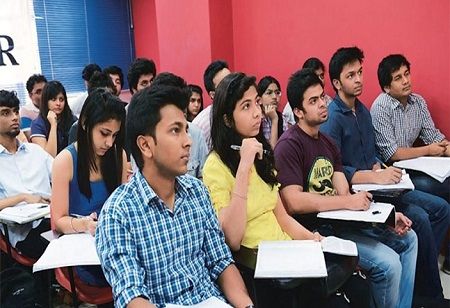Minister for Education, Science, and Technology Bidhya Bhattarai has announced the imminent introduction of the Integrated Higher Secondary Education Bill, aimed at reforming Nepal’s education sector. Speaking to journalists at her office in Singha Durbar, Minister Bhattarai emphasized that the bill is a top priority, even if it means delaying other legislative processes.
“The School Education Bill faced delays, but I am committed to pushing forward with the Integrated Higher Secondary Education Bill”, Minister Bhattarai asserted. She assured that the proposed bill would undergo extensive consultations with various stakeholders, including the Ministry of Law, Justice, and Parliamentary Affairs, as well as the Ministry of Finance, before its introduction.
Minister Bhattarai expressed confidence that this new bill would play a crucial role in enhancing the quality of education in Nepal. She highlighted the need for universities to strengthen their ties with the State and society, arguing that their independence under existing legislation has created a gap between academic institutions and societal needs. “Integrating universities with the State and societal fabric is essential for enhancing their specialization and social relevance”, she stated.
Additionally, Minister Bhattarai revealed that she has engaged in discussions with political leaders to prevent the politicization of universities, a concern that has long plagued Nepal’s higher education system.
With the budget for the current fiscal year already allocated to her Ministry, Minister Bhattarai vowed to implement a comprehensive education reform program. She also updated the media on the progress of the draft for the Compulsory and Free Education Implementation Action-Plan 2081 BS, inviting public feedback to refine its effectiveness.
The Minister outlined several ongoing initiatives, including an assessment of children’s access to basic education at the local level, the mapping of school locations, and the definition of service areas for schools. These efforts aim to ensure equitable access to education across the country.
In a bid to increase Nepal’s appeal as an educational destination, Minister Bhattarai addressed the importance of attracting more foreign students to Nepal’s technical and quality education programs. She mentioned ongoing consultations with ambassadors from countries like Japan, China, the USA, Australia, Switzerland, and the UK to facilitate quicker visa processing for students from these nations.
Minister Bhattarai also emphasized the need to retain Nepalese students within the country and to encourage the return of those who have gone abroad for studies.
Furthermore, the Minister announced a significant reduction in the time required to issue equivalence certificates, from 15 days to just five days. She directed the Janak Education Materials Centre Limited to ensure the timely distribution of school textbooks across the country, addressing a chronic issue in Nepal’s education system.
Minister Bhattarai also highlighted the need for reforms in the examination system and the learning environment to address the low pass rates in Class 10 and 12 exams. She pledged to provide better facilities and training for Early Childhood Development (ECD) teachers, recognizing their pivotal role in shaping the foundation of education in Nepal.
Supporting her remarks, Ministry Secretary Bishwababu Pudasaini reaffirmed the Ministry’s commitment to advancing education in Nepal, stating that the government is dedicated to implementing meaningful reforms that will benefit students across the country.

